Hugh Dancy
has been working as a screen actor for over 20 years, and ranking his movies from worst to best, including his turn in Downton Abbey, reveals a filmography varied in genres and styles. Since his breakout role in the 2000 TV movie David Copperfield, Dancy has amassed significant fame for such roles as Will Graham in the NBC television series Hannibal and Prince Charmont in the feature film Ella Enchanted. Beyond these headliners, however, Dancy has accrued dozens of other successful roles.
Born in Stoke-on-Trent, England, in 1975, Dancy was sent to theater class for misconduct at the age of 13 and discovered a passion for acting that would later take him far in the business. In 2009, he married actress Claire Danes after meeting her on the set of the movie Evening in 2006, and he has since also worked with her on the series Homeland. Though he currently works in television in the Law & Order franchise, his career has incorporated a range of major and minor studio roles, exploring genres as diverse as drama, action, and horror.
Blood & Chocolate (2007)
Blood & Chocolate is about a young werewolf, Vivian (Agnes Bruckner), who falls in love with an artist (Dancy) in Bucharest. She attempts to keep her social life afloat as she avoids a prophecy’s implication that she is to rejuvenate the local werewolf pack. This romance includes all of the flaws that YA novel adaptations, such as Divergent, tend to suffer from: there is an overflow of characters and an absence of well-developed exposition to communicate the plot’s importance. It translates more like a dull extension of the Underworld franchise than it does its own world.
While the performances here are not bad, the movie is nowhere near as good as just about anything else Hugh Dancy has appeared in. Critics often cited a poor script and CGI as the reasons for their panning of the movie. The movie did not even make half of its budget back in theaters according to Box Office Mojo stats.
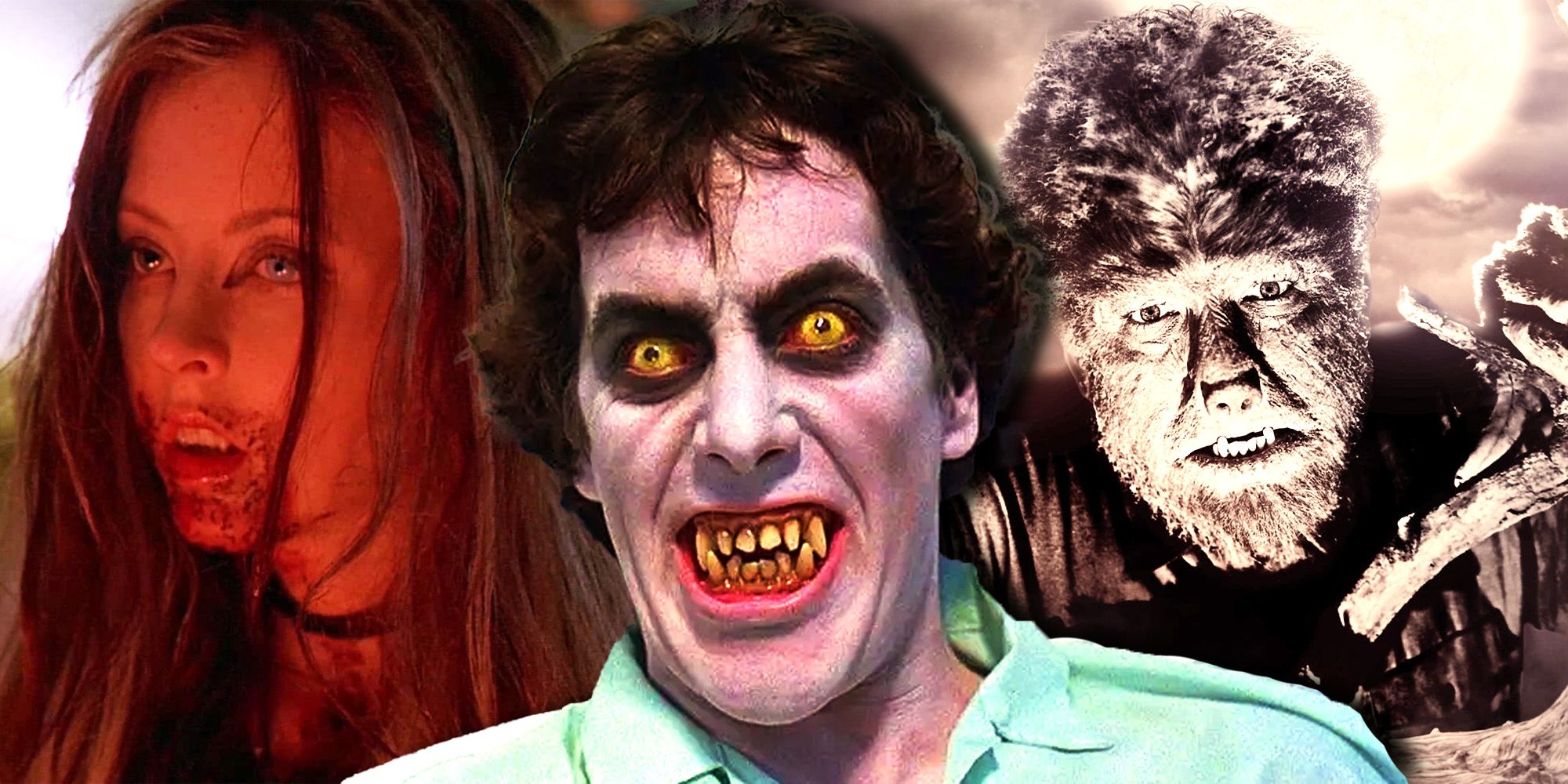
Related
10 Best Werewolf Movies Of All Time
While werewolves haven’t received as much cinematic love as vampires, zombies, or ghosts, there are plenty of classics to watch when the moon is full.
Tempo (2003)
Centered around a relationship between middle-aged thief Sarah (Melanie Griffith) and her sugar baby, Jack (Dancy), Tempo depicts the volatile consequences of mixing a life of crime with love. Dancy effectively portrays Jack’s inner conflict of desiring to be with the woman who has taken care of him versus wanting a girl more his own age who offers a naively romantic view of true love.
Amidst the movie’s abysmal framework and inability to successfully empathize with any of its characters, Tempo is left flailing for a purpose. It excels in scenes where actors (namely Melanie Griffith and Hugh Dancy) can languish in their chemistry, allowing the audience to see how they might work well together in the first place, but the movie focuses too heavily on its paper-thin plot, which is why it is little more than unmemorable.
Young Blades (2001)
Young Blades is a 2001 action-adventure film directed by Mario Andreacchio. Inspired by the works of Alexandre Dumas, Young Blades follows Hugh Dancy as the young and arrogant D’artagnan, who joins forces with Three Musketeers to stop a war brewing between France and Spain. Though difficult to condemn an adventure film for its overabundance of camp, Young Blades has to be categorized as such. Its historical inaccuracies and a glaring disregard for its source material are apparent.
If fans of swashbuckling tales want more sword fighting, there are plenty of alternatives, including multiple other adaptations of The Three Musketeers, that they can enjoy instead. Camp and adventure even go hand-in-hand in many Errol Flynn classics, but here, there just is not enough of a balance to make the movie work.
The Sleeping Dictionary (2003)
The Sleeping Dictionary tells the story of an Englishman who travels to a village in Malaysia to educate the natives about Western civilization. There, he is assigned a “sleeping dictionary” whom he falls in love with and has to deal with the differences in their backgrounds and their futures in the region.
Though Jessica Alba and Hugh Dancy share tangible chemistry, which properly communicates the potential tragedy of their union, their relationship is not enough to keep the movie afloat. The romanticism of colonialization is also a dated flaw in the narrative that detracts from the beautiful shooting locations. It should also be noted that the movie plays fast and loose with history in the region and the entire idea of the “sleeping dictionary” is actually inspired by an Iban courting custom in the region, not a colonial practice.
Basic Instinct 2 (2006)
The sequel to the sultry neo-noir Basic Instinct, Basic Instinct 2 continues the story of serial killer Catherine Tramell. Sharon Stone returns and luxuriates in her performance as Tramell, while Dancy plays the flamboyantly determined reporter Adam Towers, which uplifts a notably dry and unsexy movie compared to its groundbreaking predecessor. It is rare for a sequel to live up to a wildly popular original movie, and that is the case here.
The sequel fails to capture the key elements of a noir and despite Sharon Stone’s dedication, Basic Instinct’s trademark femme fatale element feels withdrawn. Of course, some critics called it “so-bad-it’s-good” which is a category for a lot of fun popcorn flicks that fall into action and thriller categories. There is definitely an audience for the movie, but Dancy has so many more movies in his career that far outshine it.
Evening (2007)
Dancy stars alongside his now-wife Claire Danes in Evening, an isolated story about a wedding, an affair, and a death. Framed as a recollection from a dying woman, the movie carries a wistful yet melancholic vibe through its entire runtime. Dancy shines apart from the rest of the cast. His character’s narrative is a far more tragic and interesting tale in contrast with the main affair of the story.
Many critics found the brightness of the cast to contrast too much with the melancholic nature of the film. Ultimately, Evening is still a relatively harmless effort but lacks enough substance to make it anything more than forgettable. Time’s review of the movie in 2007 stated, “Rarely have so many gifted women labored so tastefully to bring forth such a wee, lockjawed mouse.”
Our Idiot Brother (2011)
Our Idiot Brother centers around Paul Rudd’s titular character, who is down on his luck and looking to his three haughty sisters to get him out of a tough spot. Dancy plays a supporting role here as a love interest for one of those haughty sisters. The comedy depends on believably dysfunctional family dynamics and awkward situations to stick its landing, which it doesn’t always achieve.
Rudd’s natural charisma keeps the movie afloat, however, and is generally enjoyable even though it is not always as laugh-out-loud funny as was likely intended. In addition to Rudd and Dancy, Emily Mortimer, Zooey Deschanel, and Elizabeth Banks all have extensive comedy experience and help to sell some of the jokes that might not have landed as well among less experienced performers.
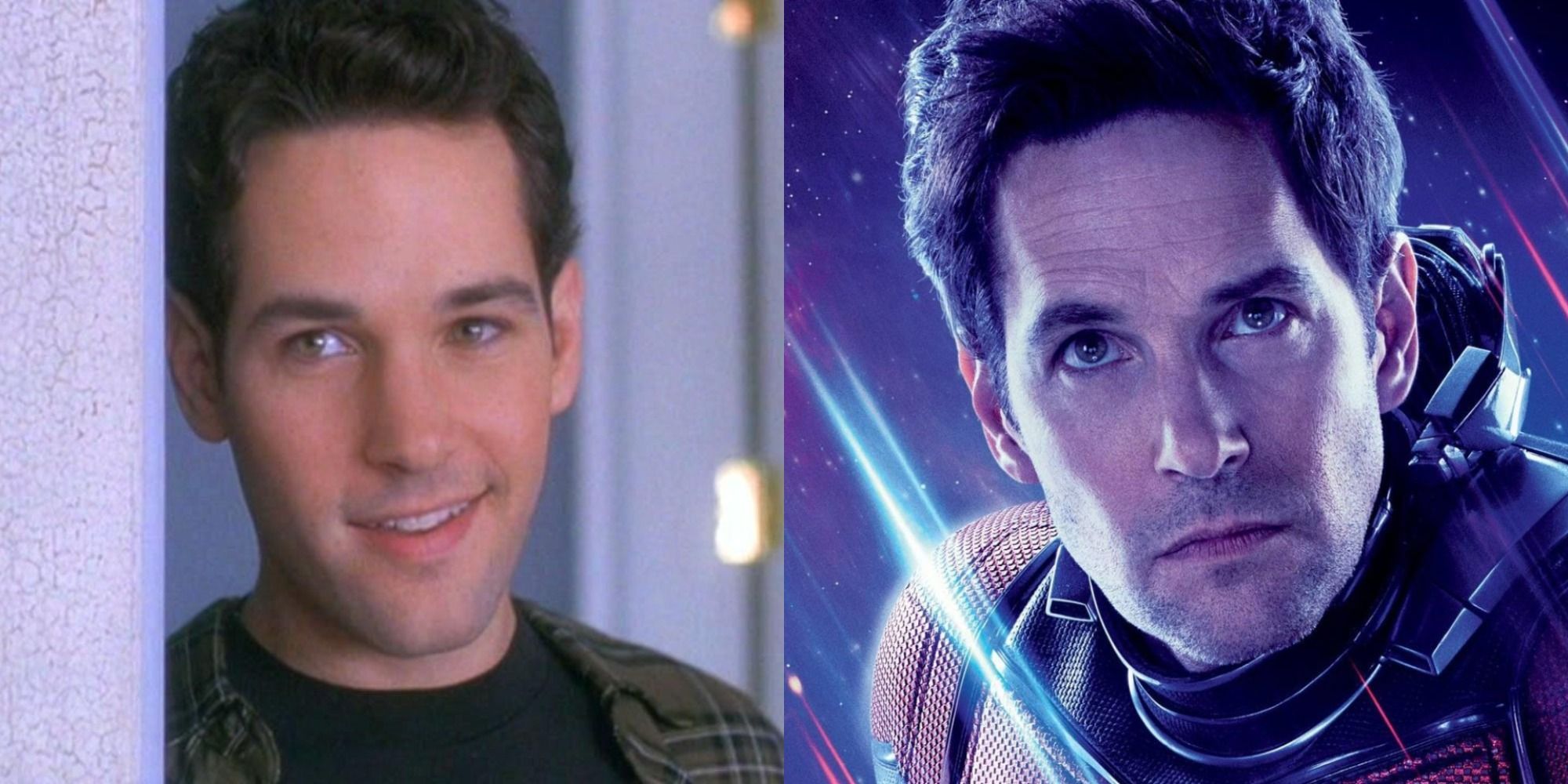
Related
10 Best Paul Rudd Movies, Ranked
The charismatic Paul Rudd has been a big part of some memorable movies throughout his illustrious career.
Coach (2010)
Coach is a sports romantic comedy following the savvy slacker Nick (Dancy), who decides to land a job as the coach for a middle school soccer team. Unfortunately, the characters don’t learn the lessons the overarching narrative is trying to impress upon its audience, which makes it a little difficult for the movie to make its point.
There are a few endearing moments scattered throughout Coach implicating the skeleton of a memorable movie about ambition, but it never gets fleshed out enough to get there. It lands as a less effective rendition of Judd Apatow’s Trainwreck. Even the more family-friendly ’90s movie The Mighty Ducks takes on the concept better.
David Copperfield (2000)
The TV movie David Copperfield has a fresh-faced Dancy acting alongside big-name actors like Sally Fields and Seinfeld‘s Michael Richards. This Charles Dickens adaptation highlights the merciless childhood of future renowned author David Copperfield (Dancy). Cloying but enjoyable, it is a pragmatically peppy variation on the classic tale that spotlights Dancy’s talent from an early age. There are, undoubtedly, better adaptations of the Dickens classic, but this one still marks an important milestone in Dancy’s career.
The movie was Dancy’s first, though he had appeared in multiple television shows before the movie was made. 2000 became a big year for him as he appeared in multiple TV movies and television shows. While David Copperfield might not be as memorable for his fans, it provided him with his break into features, and helped his career path form.
Late Night (2019)
Written by Mindy Kaling, Late Night follows the only female talk show host (Emma Thompson) striving to change up the tedium of her show by hiring her first female writer. Hannibal‘s Hugh Dancy plays the love interest to Kaling’s TV-writer character, playing him with a gleeful yet conniving attitude that greatly adds conflict to the script. This is one of the first movies here in which Dancy really shines (and appears to be having a good time) in the part.
Though clunky in some of its progressive themes, this comedy-drama quickly raises the bar for meta commentaries about modern-day writing rooms and Hollywood. With star performances from John Lithgow, Kaling, and Thompson, Late Night is the first must-see here. RogerEbert.Com called it “an earnest and funny comedy, with very sharp teeth.”
Hysteria (2011)
Hysteria is the true story of how Mortimer Granville (Dancy) invented the first vibrator to help cure women of their “hysteria,” as it was so-called in the 1900s, depicting an era in which women are alternately controlled and repressed. With an outlandish concept and quick pacing, Hysteria doesn’t fail to keep its viewers engaged, but that is not all the movie needs in order to succeed among Hugh Dancy’s best movies.
Hysteria’s obscene subject matter simultaneously leads the movie through frequently drawn-out bouts of awkwardness. There is, at least, enough self-aware mischief in the story that will satisfy the average viewer. Some critics noted it worked best as a romantic comedy. The London Evening Standard even noted it as “all rather sweet in its way,” though critics wanted the movie to be more daring thanks to its subject.
Shooting Dogs (2005)
The war drama Shooting Dogs is based on real-life events taking place in a land-locked republic in Africa. Renowned actor John Hurt stars as a Catholic priest alongside Dancy’s school teacher character, both of them stranded in Kigali during the Rwandan genocide of 1994. Other movies have examined the Rwandan genocide, but often from different angles.
It is possible no other movie translates the impact of genocide more clearly than Shooting Dogs, with its barefaced brutality. Dancy and Hurt manage to effectively communicate the helplessness of the surrounding ethnic conflict. Its isolated focus inside the school actually separates it from the average war drama and makes the movie’s true-to-life context even more chilling.
Writer David Belton was nominated for a BAFTA for his work as a newcomer on the movie.
Adam (2009)
Adam is a compact film about the relationship between Beth (Rose Byrne) and her downstairs neighbor Adam (Dancy – whose work here arguably laid the groundwork for Hannibal lead Will Graham). Acclaimed for its authentic representation of Asperger’s, Adam takes advantage of its respectably quaint and bittersweet plot to accentuate the singularities of being on the autism spectrum, not to ridicule them. Dancy and Byrne’s chemistry is full of sparks and makes this already solid movie a classic.
Though Adam filmed in 2005, it did not premiere until it screened at Sundance in 2009, giving those behind the movie time to hone the cut they wanted to present to the public and find a distributor. At Sundance, Adam won the Alfred P. Sloan Prize, but it did garner mostly mixed reviews from critics once it was released.
Black Hawk Down (2001)
Black Hawk Down is the true story about the U.S. soldiers, one of them portrayed by Dancy, who dropped into Mogadishu to capture notorious warlord lieutenants but got caught up in a deadly battle in Somalian territory. From director Ridley Scott, this war film does not shy away from gritty visuals and military pacing. The viewer is in the heavy shoes of a soldier trudging along towards survival. Hans Zimmer’s score exemplifies what is truly at stake for these characters.
The movie has been used to study the depiction of war in American film ever since it premiered. While the events of the movie are openly critical of war and conflict, the story is also undeniably pro-soldier, showing the many layers to being in the military and caught in the middle of a battle a soldier may or may not agree with.
Black Hawk Down was nominated for four Oscars, winning two of them.
Confessions Of A Shopaholic (2009)
This upbeat 2009 rom-com is about the shopping addiction of Rebecca (Isla Fisher) and the debt she accumulates due to it. Hugh Dancy continues to prove himself as an incredibly endearing love interest who plays a good foil to Isla Fisher’s zany persona. Confessions of a Shopaholic utilizes its humorous concept well but never quite balances it out with a proper sprinkling of drama. Despite that, this movie is a pleasantly tame experience.
Of course, fans of Sophie Kinsella’s series of novels that inspired the movie will note that it is not exactly a faithful adaptation of the novel. While Dancy and Fisher are charming in their roles, there are many details from the book that have been changed or omitted completely that could have helped bring the story together a little bit better.
King Arthur (2004)
Antoine Fuqua’s King Arthur is an action-adventure film where the titular King Arthur is a Roman officer commanding a group of knights. Though historically inaccurate in several glaring respects, the movie is bubbling with life and medieval variance. Critical reviews of the movie were decidedly mixed with Slate even going so far as to call it “profoundly stupid,” while Roger Ebert was more positive, saying, “That the movie works is because of the considerable production qualities and the charisma of the actors, who bring more interest to the characters than they deserve.“
Dancy plays a perfectly arrogant Galahad, and with the rest of the cast full of A-list actors, the dynamic the legendary knights share shines in this otherwise overcomplicated feature. It also offers a foreshadowing glimpse into Dancy’s onscreen chemistry with Mads Mikkelsen in Hannibal.
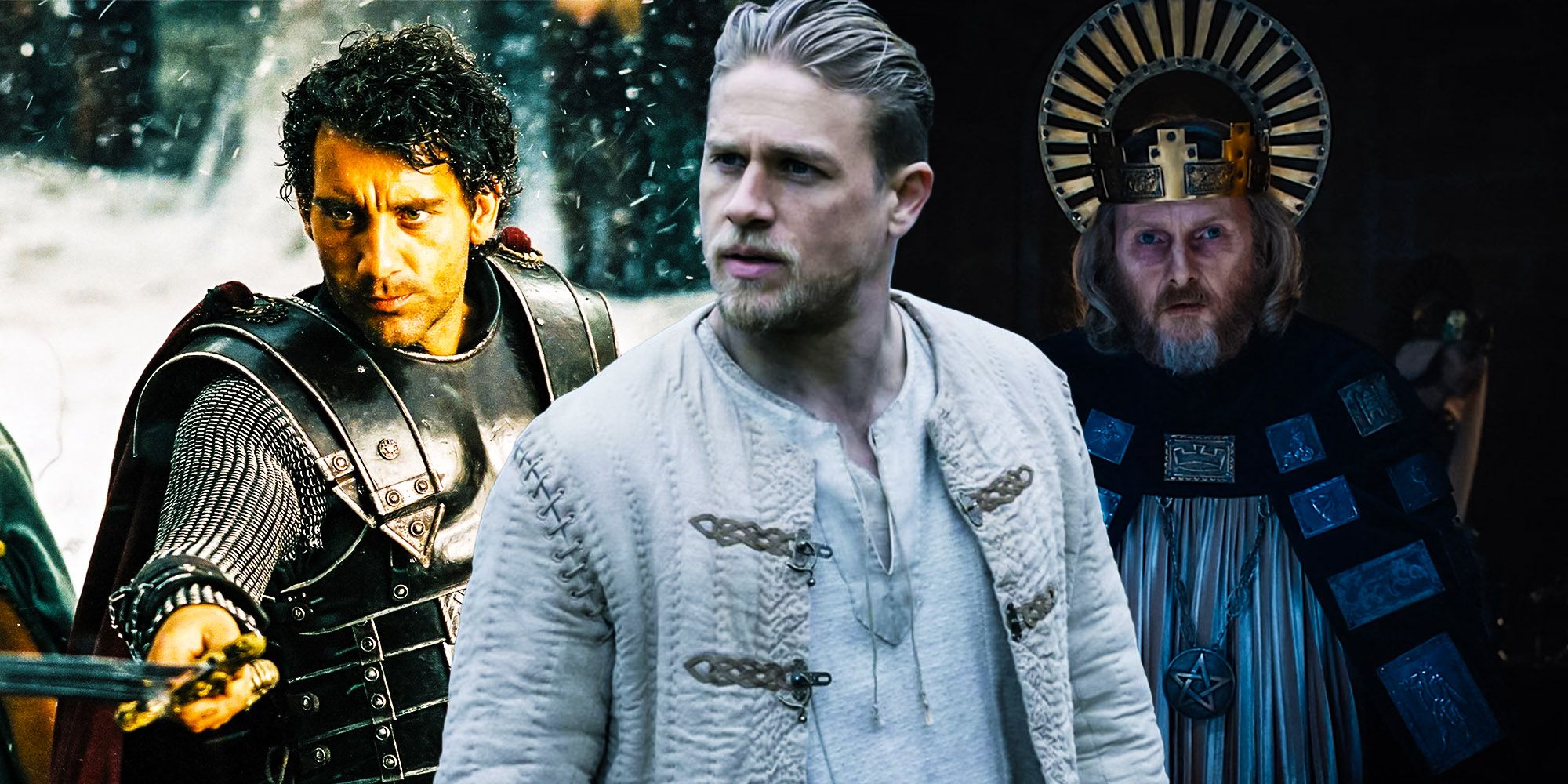
Related
Every King Arthur Movie, Ranked Worst To Best
The Arthurian legend infused with magic and mysticism remains a popular choice for filmmakers to adapt, but which King Arthur movie ranks best?
The Jane Austen Book Club (2007)
While more jaded audience members will dismiss most romantic comedies as following a simple formula, the execution of that formula makes all the difference. Here, the execution of the formula is helped along by Jane Austen herself, whose romances have provided the foundations for a lot of the modern rom-coms as audiences know them.
Beautifully structured around a variety of Jane Austen novels, the author’s classic themes bleed over into this uplifting rom-com where love is discovered, revitalized, and compromised. The Jane Austen Book Club weaves drama and comedy together seamlessly, which makes for an alleviating and grounded experience. Dancy’s Grigg is dopily charming and the perfect foil to Maria Bello’s quick-witted Jocelyn. Elevated by its subject matter and unique framing of Austen’s novels, this optimistic film leaves a gentle lasting impression.
Martha Marcy May Marlene (2011)
The critically acclaimed drama Martha Marcy May Marlene revolves around the shocking consequences of cult integration on a young woman, Marvel’s Elizabeth Olsen in one of the early roles that made critics take notice of her), who returns to a tense home after escaping from one. Dancy plays her aloof brother-in-law, Ted.
Olsen’s stellar performance effectively conveys the alienation felt in the aftermath of escaping a cult, the influence of which looms over the film darkly, making for a riveting and suspenseful experience. The movie and Olsen received numerous nominations and awards across the film festival circuit, and her supporting cast, which includes Dancy and Sarah Paulson, seemed to know exactly when to pull back in scenes to allow her to shine. The movie won 22 awards across the festival circuit and among critical organizations, but was nominated for 74 more.
Downton Abbey: A New Era (2022)
Downton Abbey: A New Era is the second sequel film to the original hit series based around a family of British elites in the post-Edwardian era. It is definitely going to appeal to fans of the franchise more than it will general audiences, but that does not mean it is not worth a view. While the first film is a grand and cinematic experience, this film further livens aspects that were previously lacking.
Dancy plays a movie director, Jack Barber, and inspires a humorous and emotional experience for the residents at Downton who get caught up in his Hollywood process. With more tears and laughs this round, Downton Abbey: A New Era is a rollercoaster and love note to fans all in one package that encourages the concept of future sequels. Appropriately, a sequel to the movie was announced in 2024.
Ella Enchanted (2004)
Ella Enchanted is a fairy tale film inspired by a young adult novel and starring Anne Hathaway as the titular Ella and Hugh Dancy as her love interest and soon-to-be king, Prince Charmont. The movie is a send-up of both Cinderella and Sleeping Beauty, borrowing elements of both stories to craft an entirely new take on a fairy tale.
Ella sets out on a journey to erase her special “gift” forcing her to do what others tell her to do. An equally joyous and tense ride of misunderstandings and heartbreak, Ella Enchanted succeeds both at entertaining all ages and communicating its powerful message. Saturated visuals, clever utilization of pop songs, and the film’s undeniable Disney energy and formula make it a nostalgic gem. Dancy is perfectly charming in the role, but there is also more substance to him than most handsome princes in fairy tales.
Savage Grace (2007)
Savage Grace is based on the disturbingly real story about the relationship between socialite Barbara Daly Baekeland and her schizophrenic son, Tony. Julianne Moore and Eddie Redmayne portray the volatile dynamic to a superb degree and leave viewers’ skin crawling. Hugh Dancy portrays Barbara’s lover, Sam Green, who also sleeps with her son, which fosters a disturbing triangle between them all.
Tom Kalin’s unique framing of sexuality weaving into themes of nature versus nurture truly elevates this movie from a harrowing drama into an elegant retelling of a tragedy. While many of Dancy’s other movies allow him to shine as an actor, they can be marred by stilted dialogue or choppy storytelling. Savage Grace not only allows him to shine, but also acts as a compelling narrative with equal scene partners and taut storytelling. It is Hugh Dancy‘s best movie.

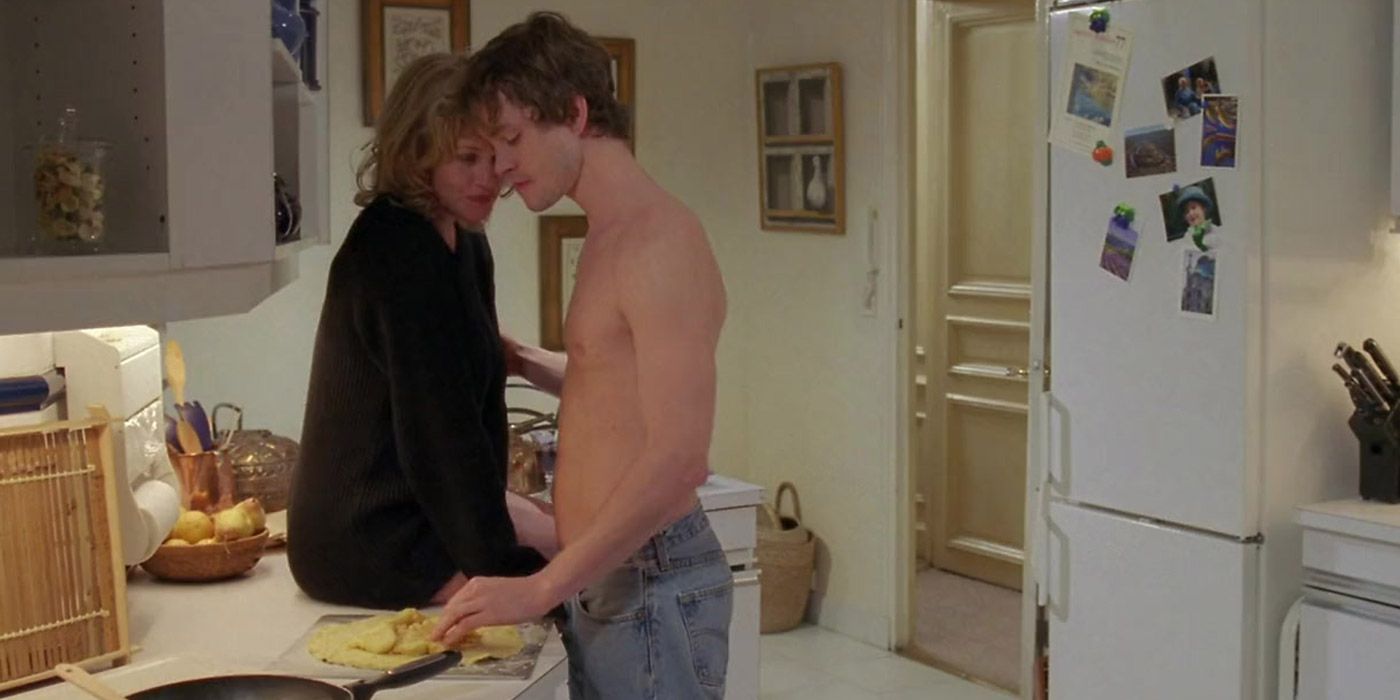
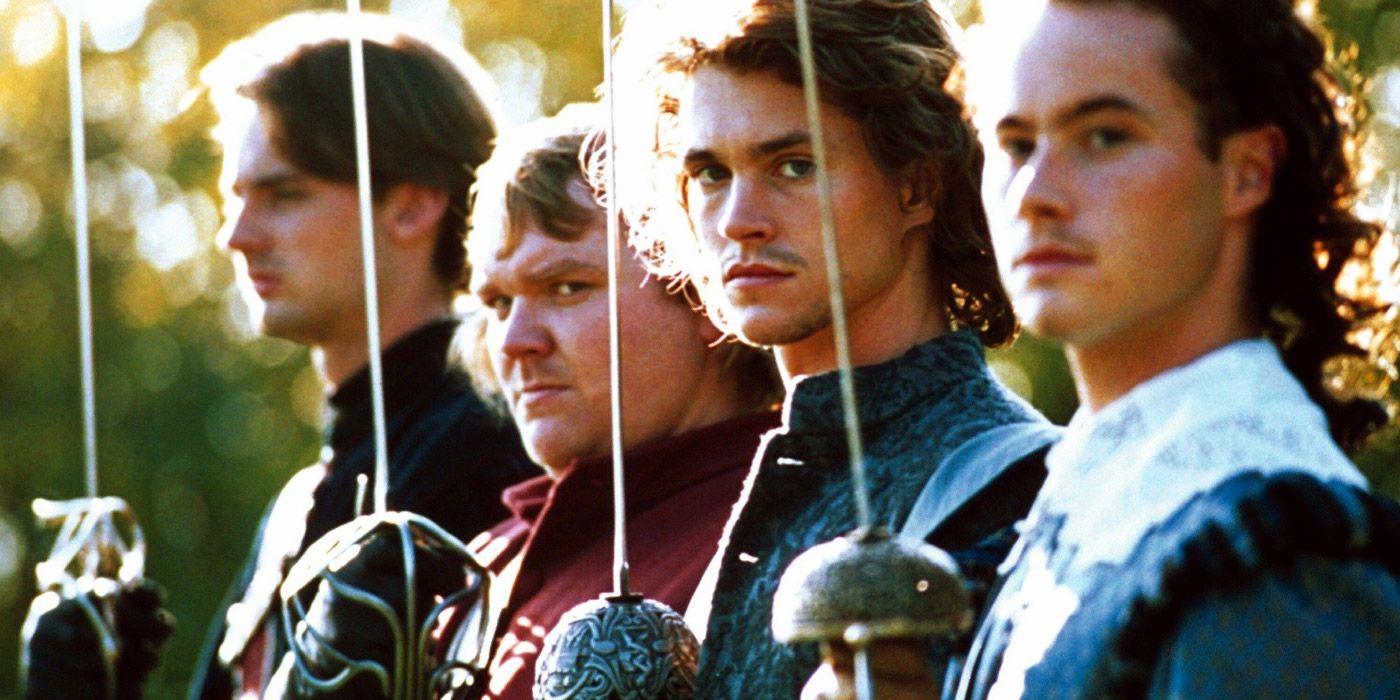
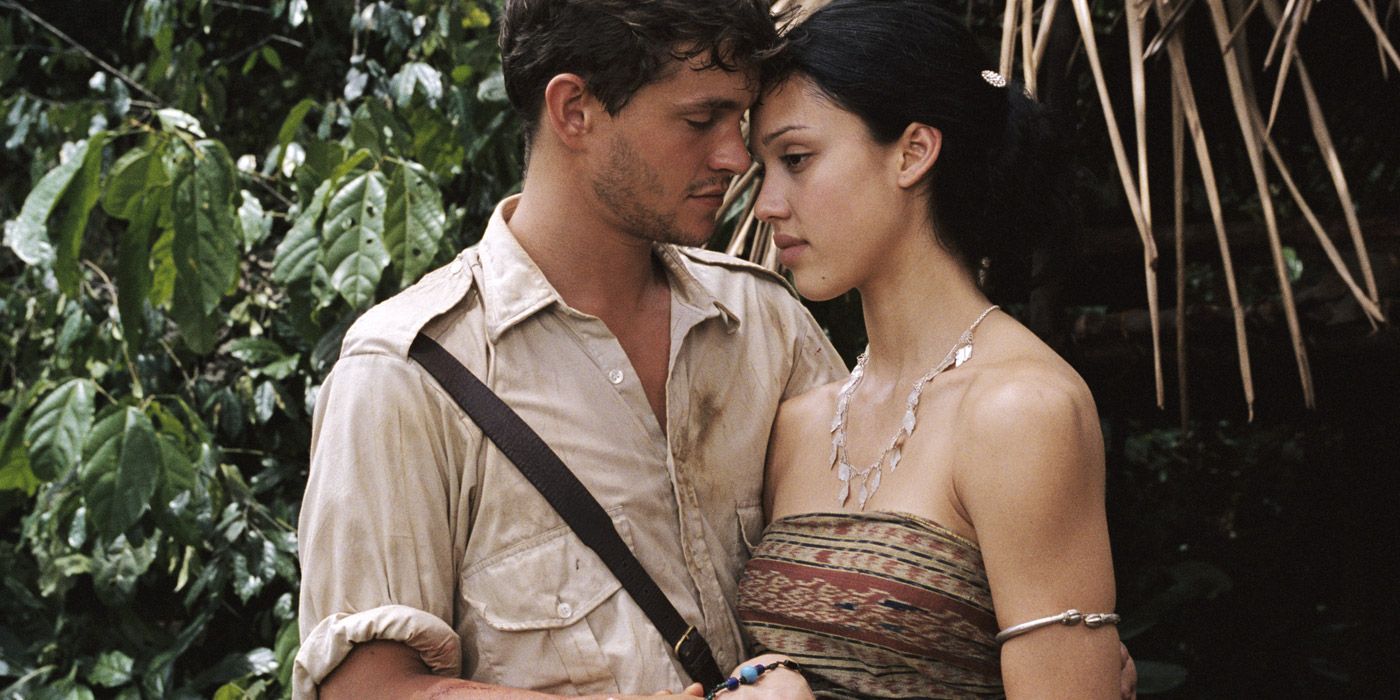
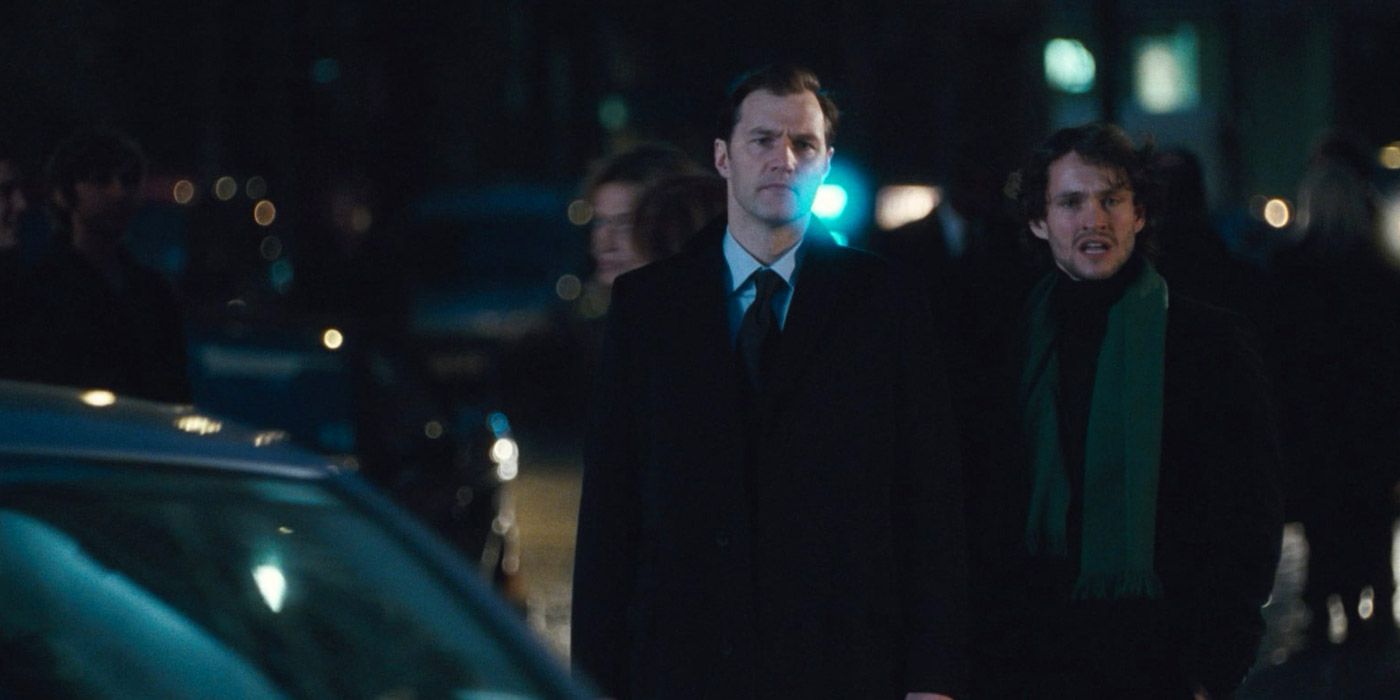
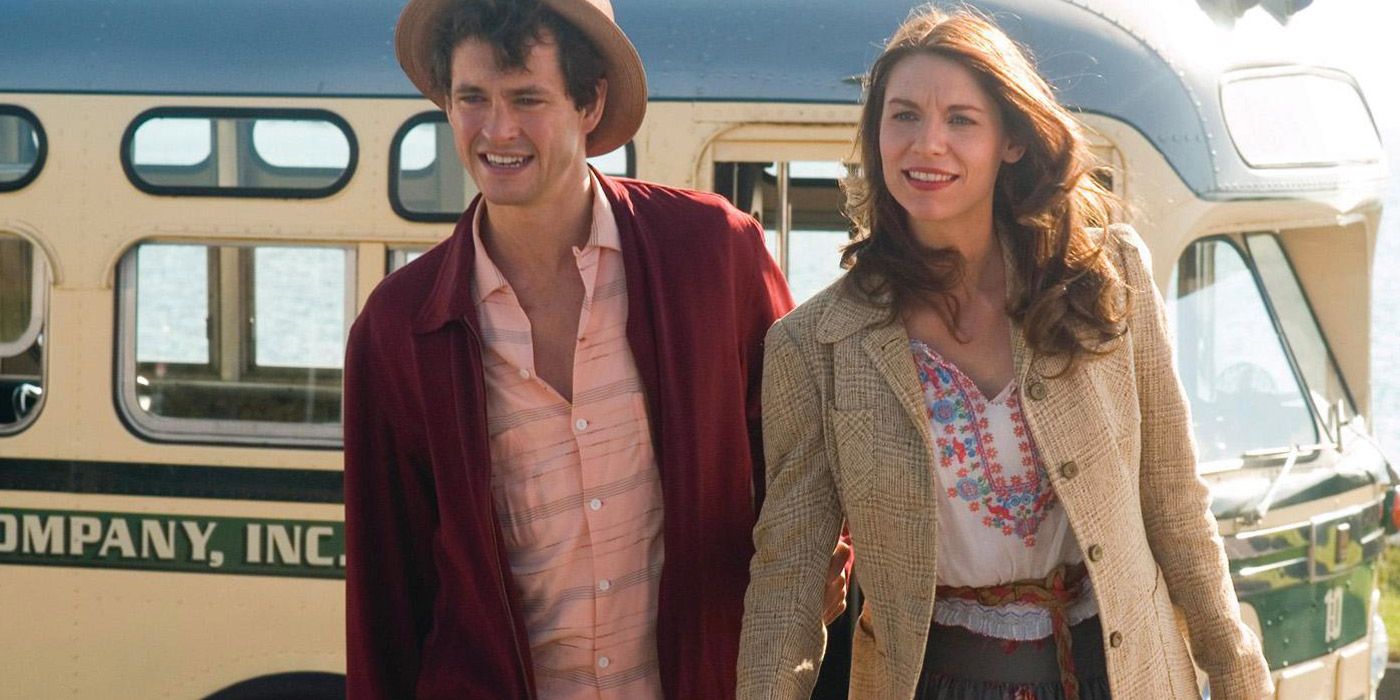
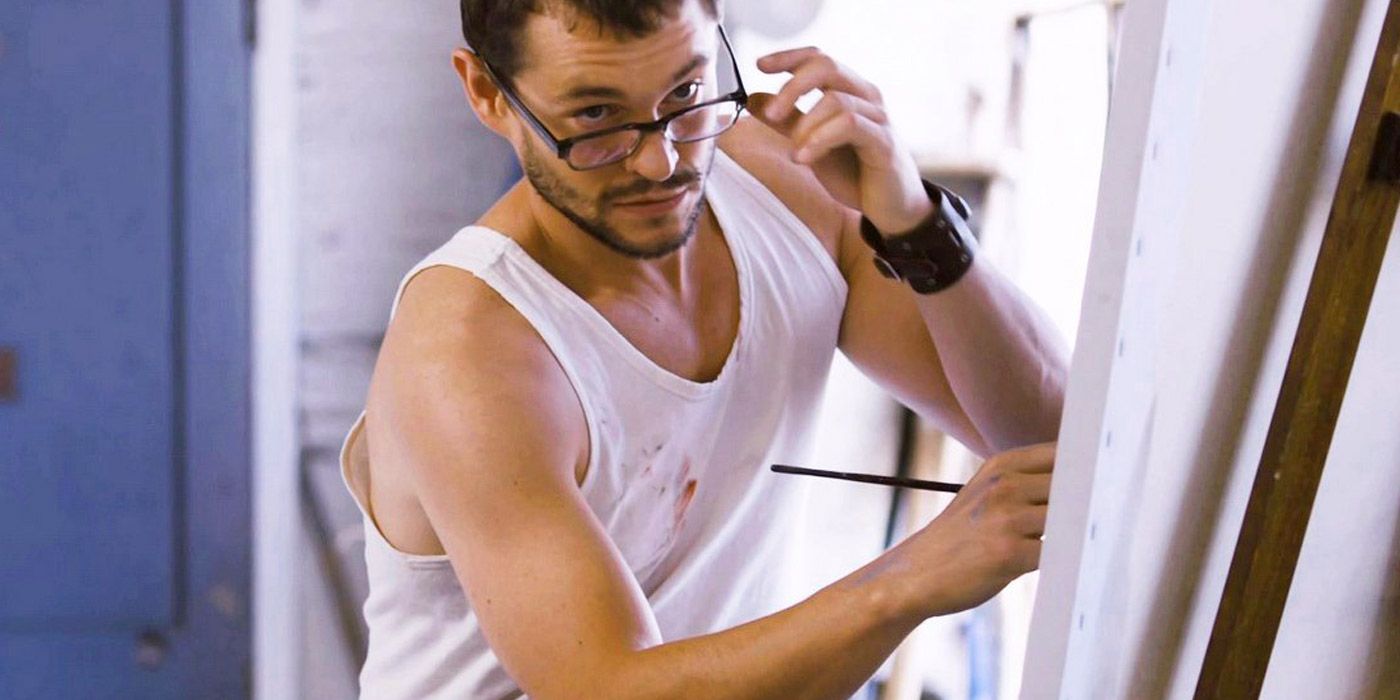
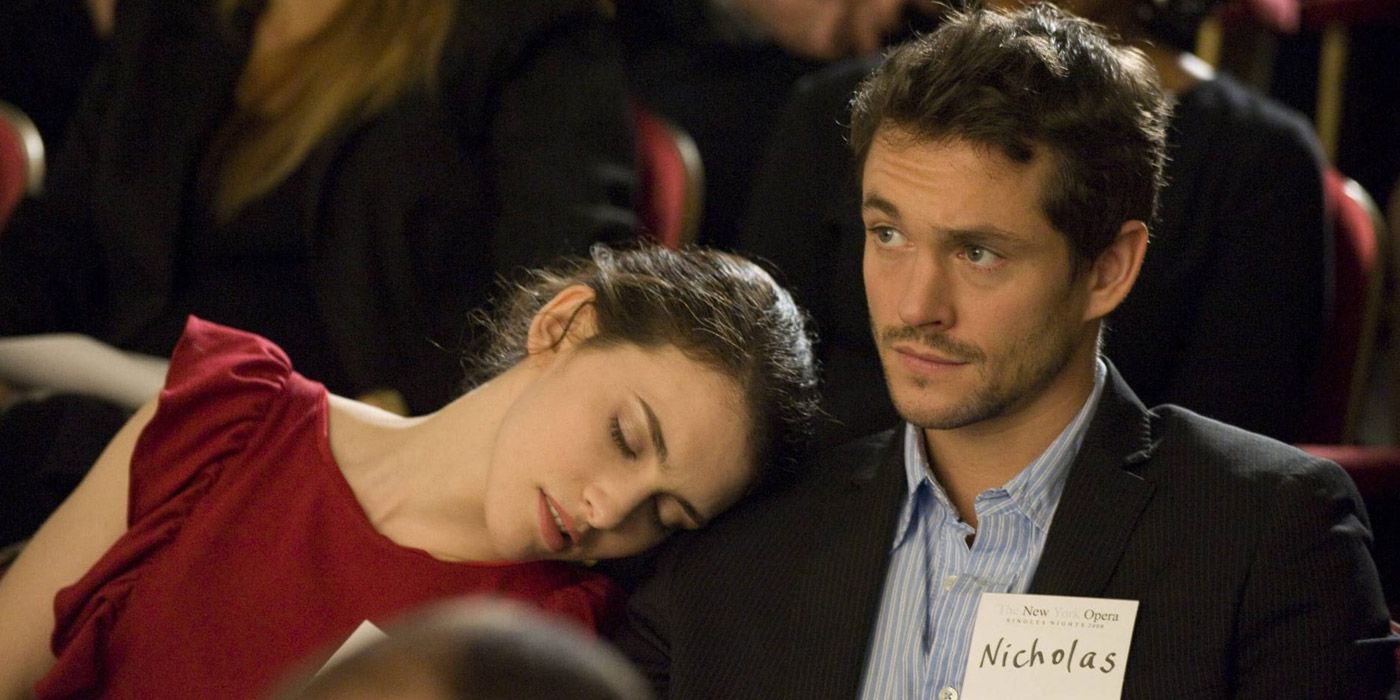
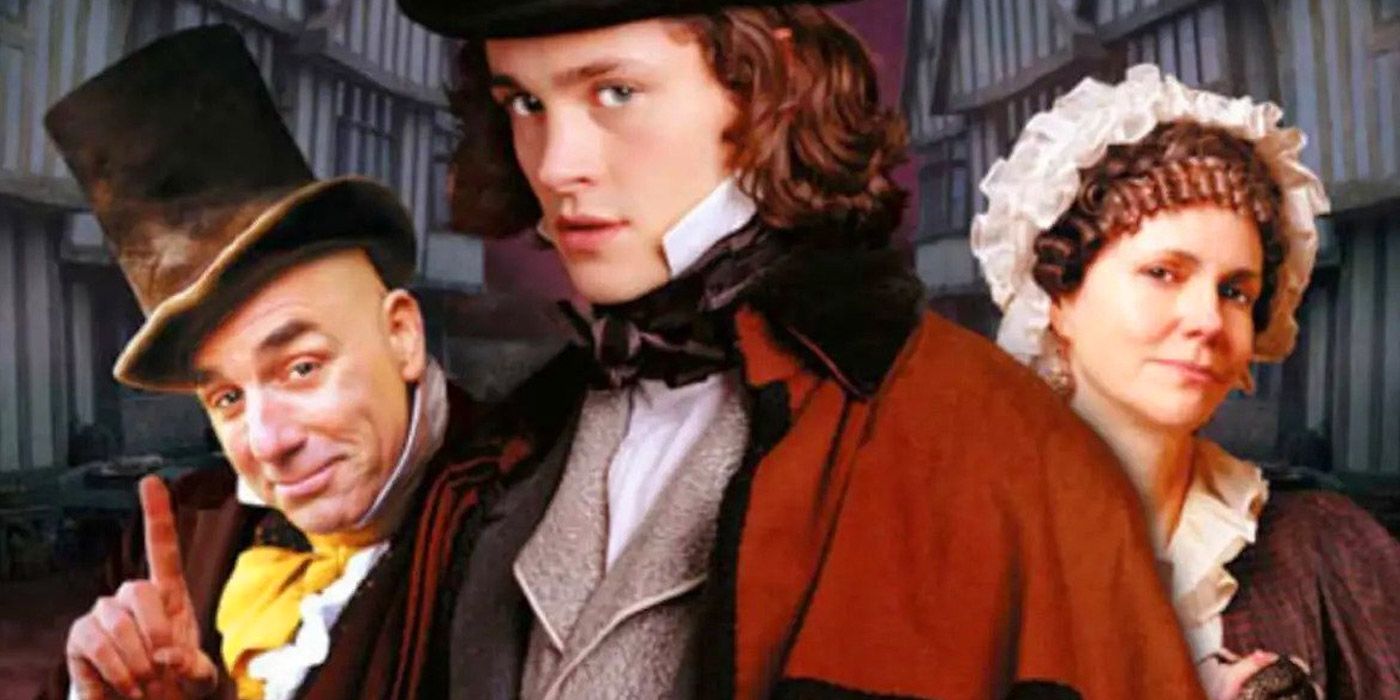
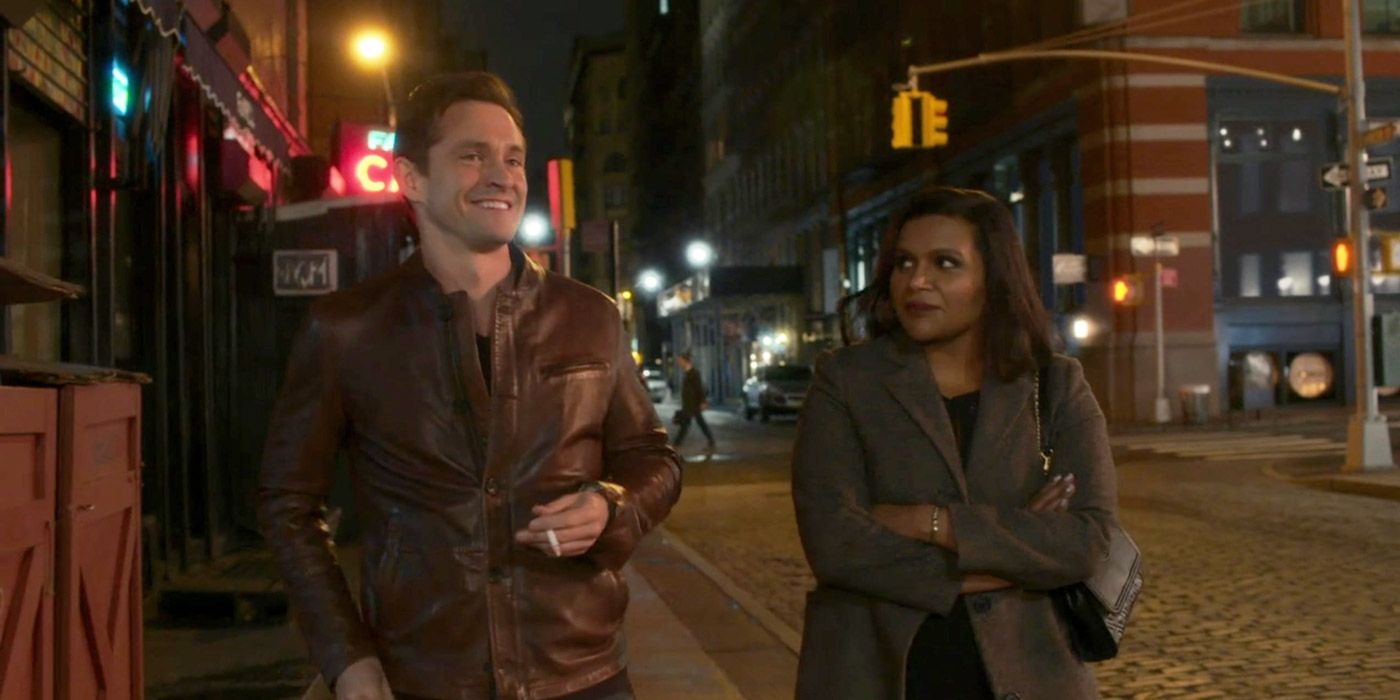
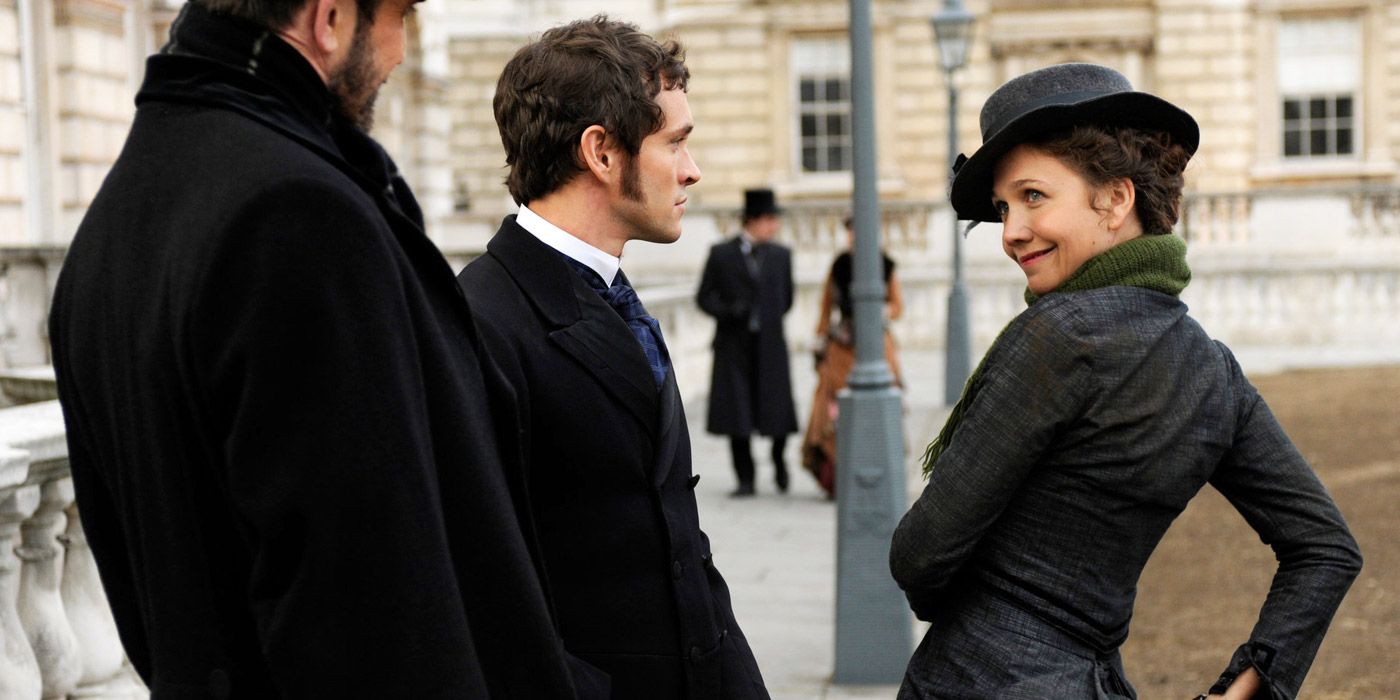
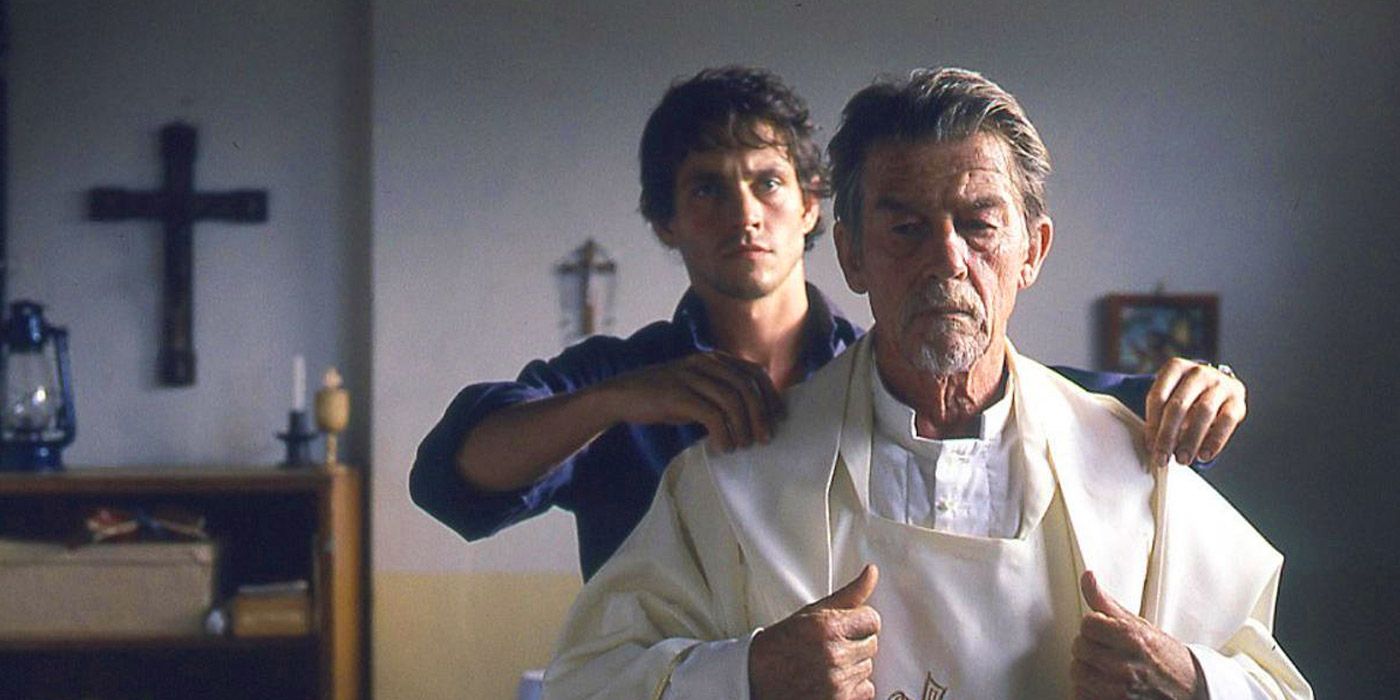
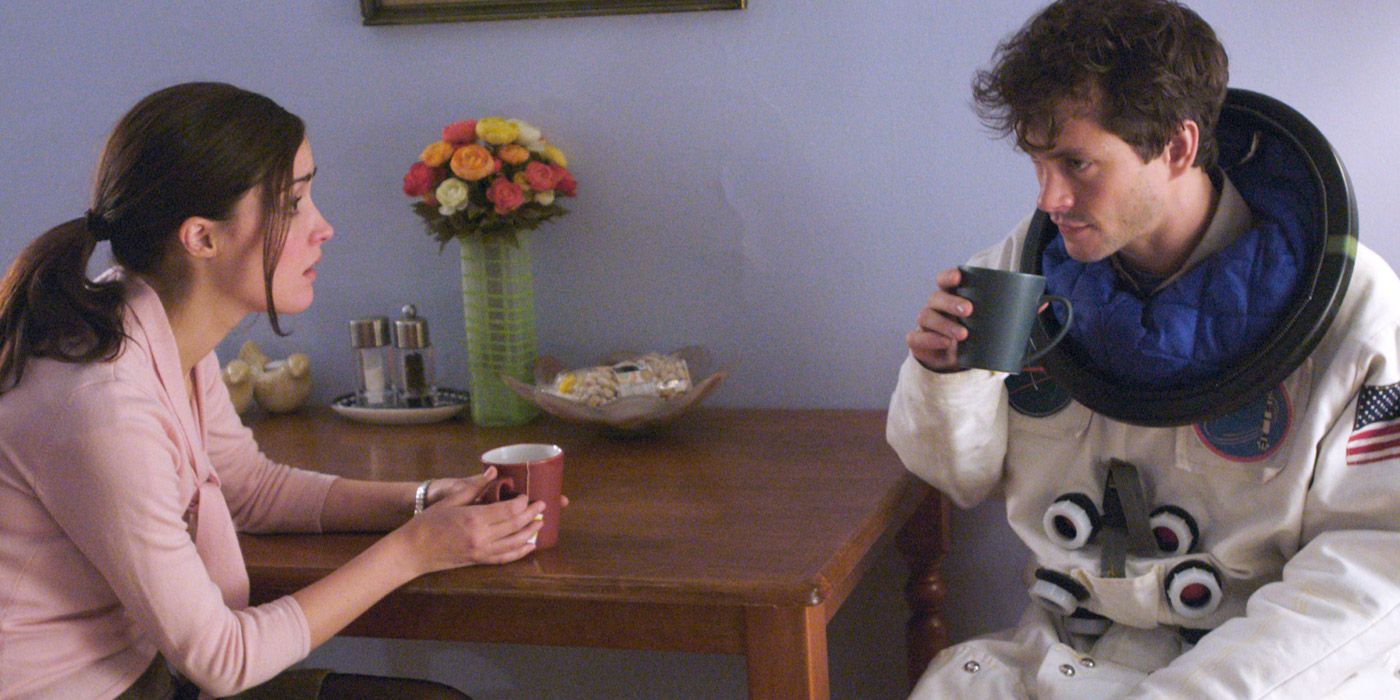
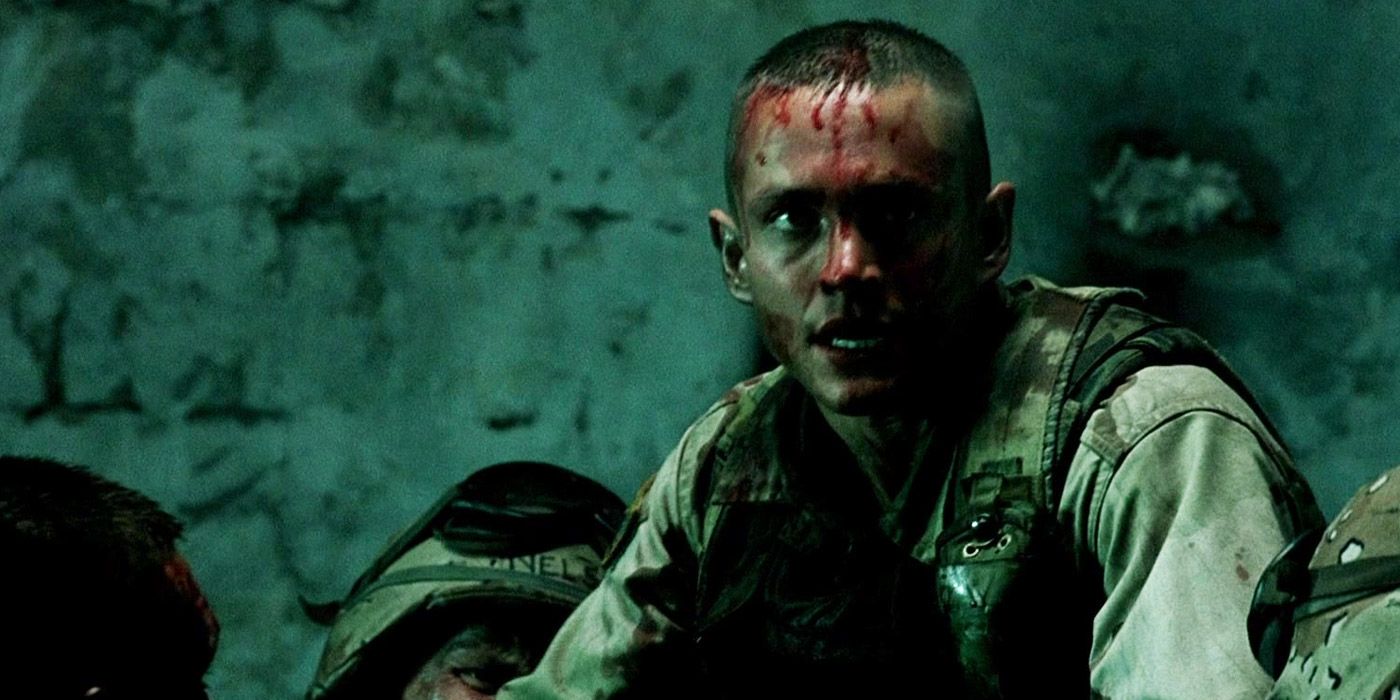
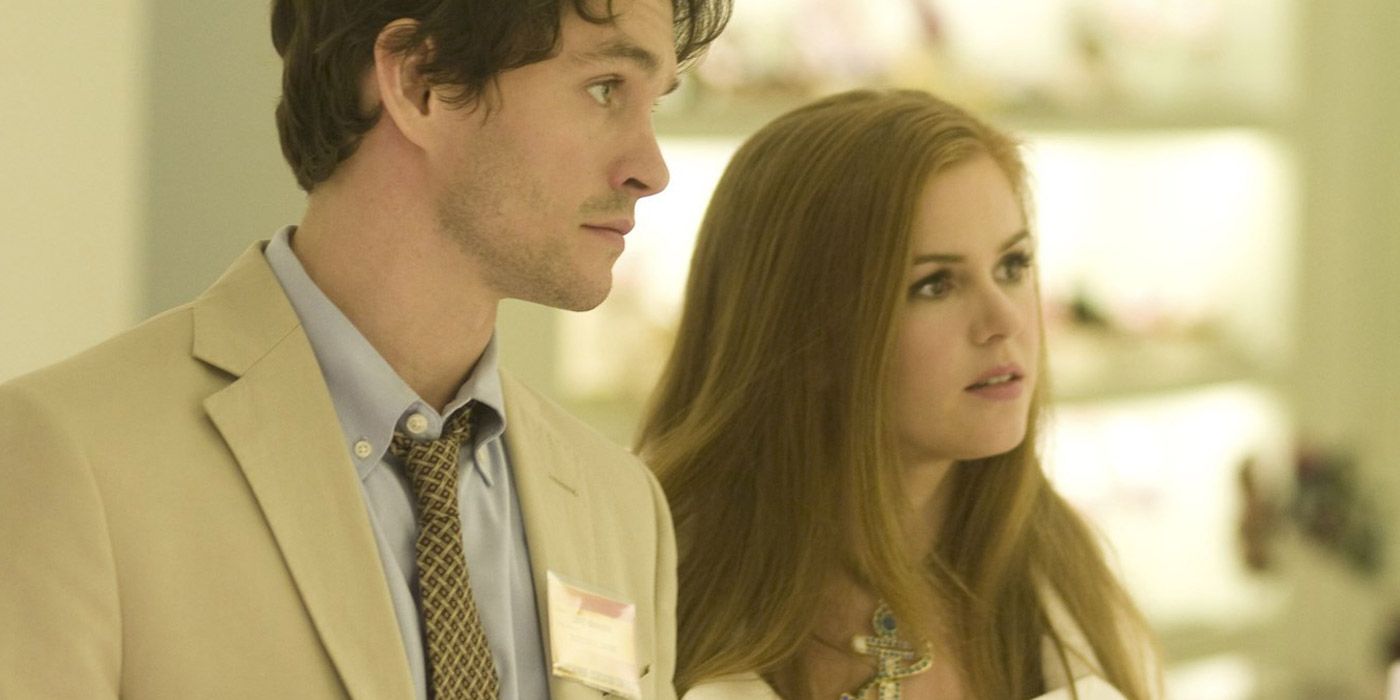
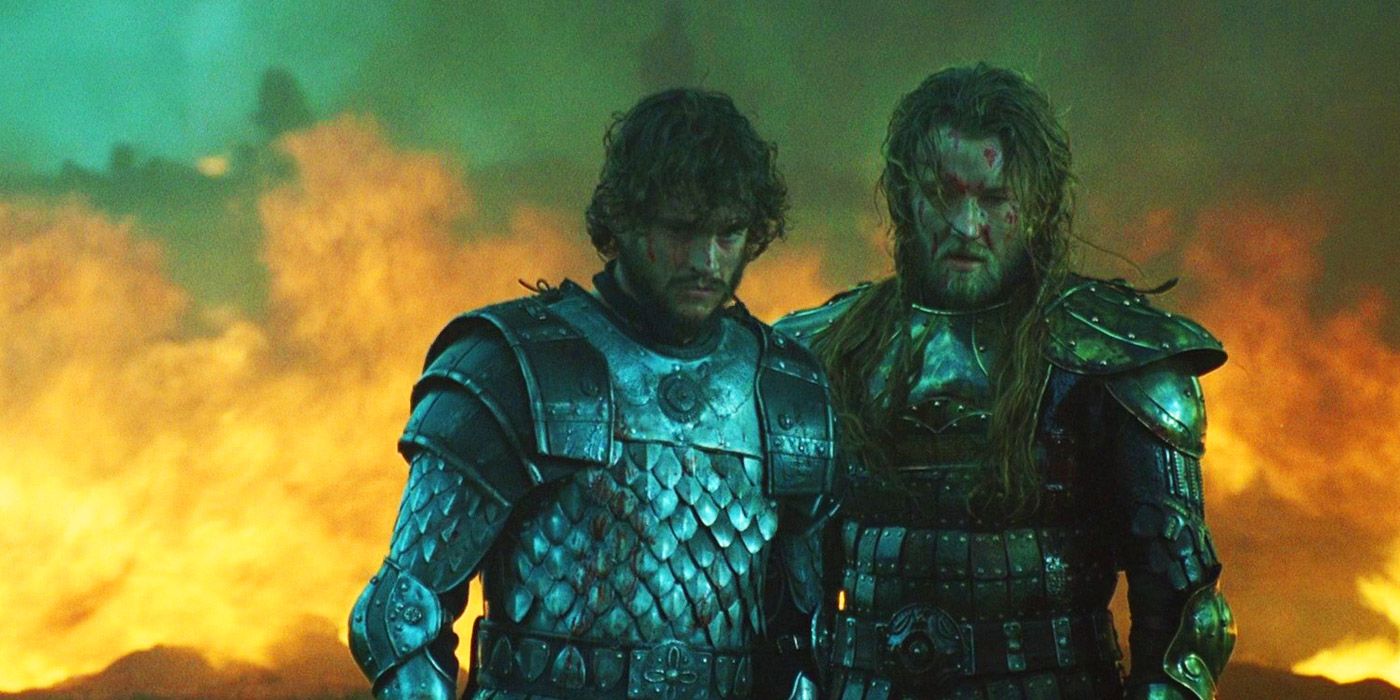
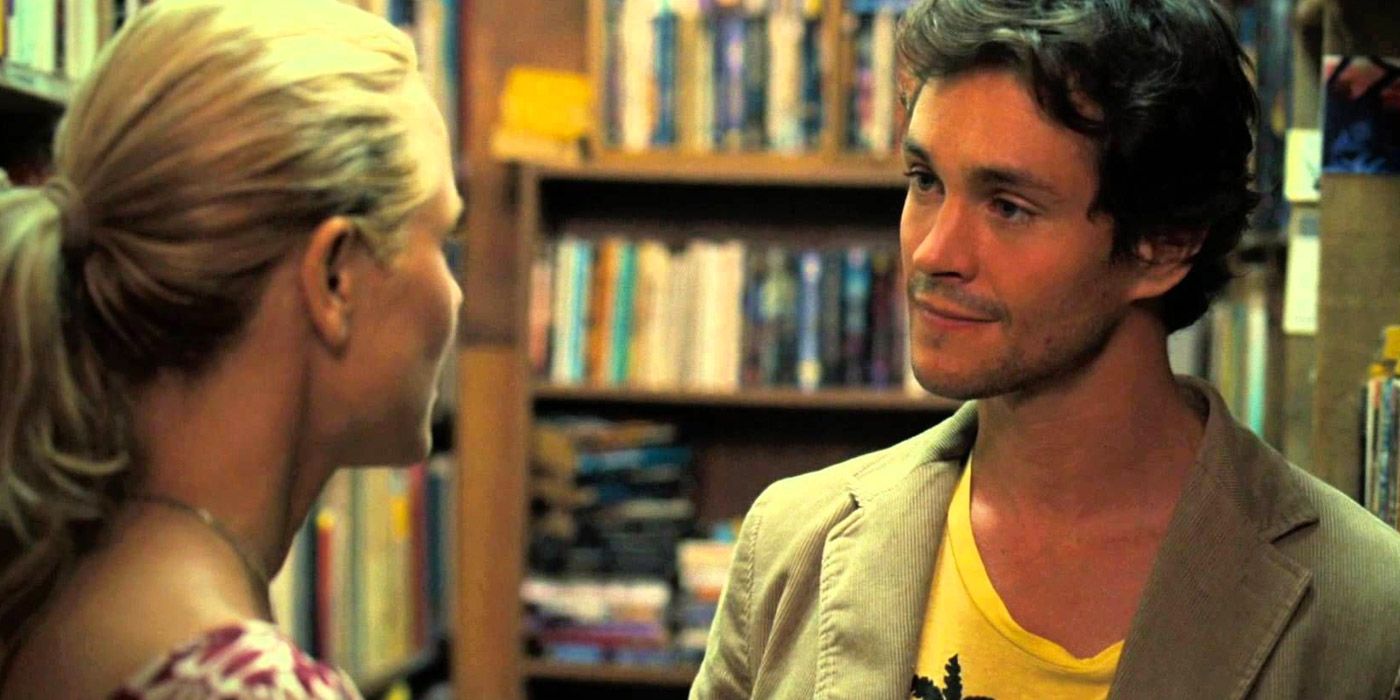
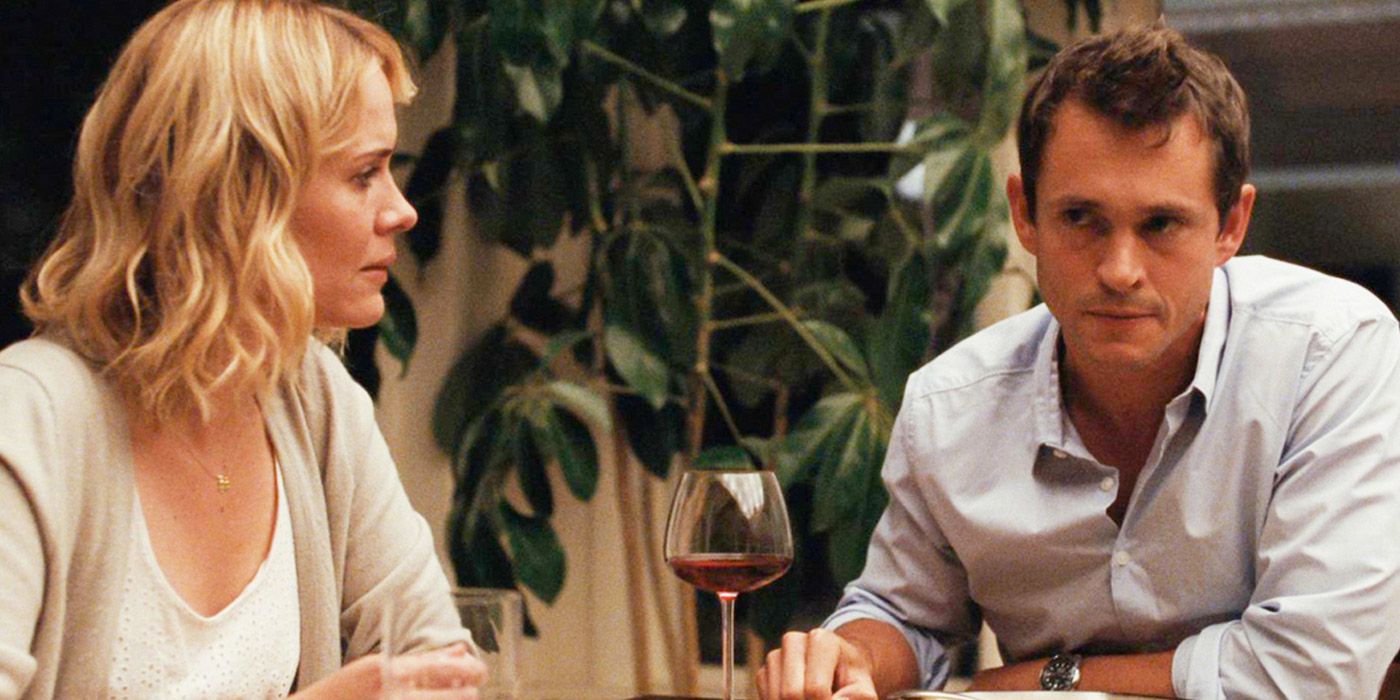
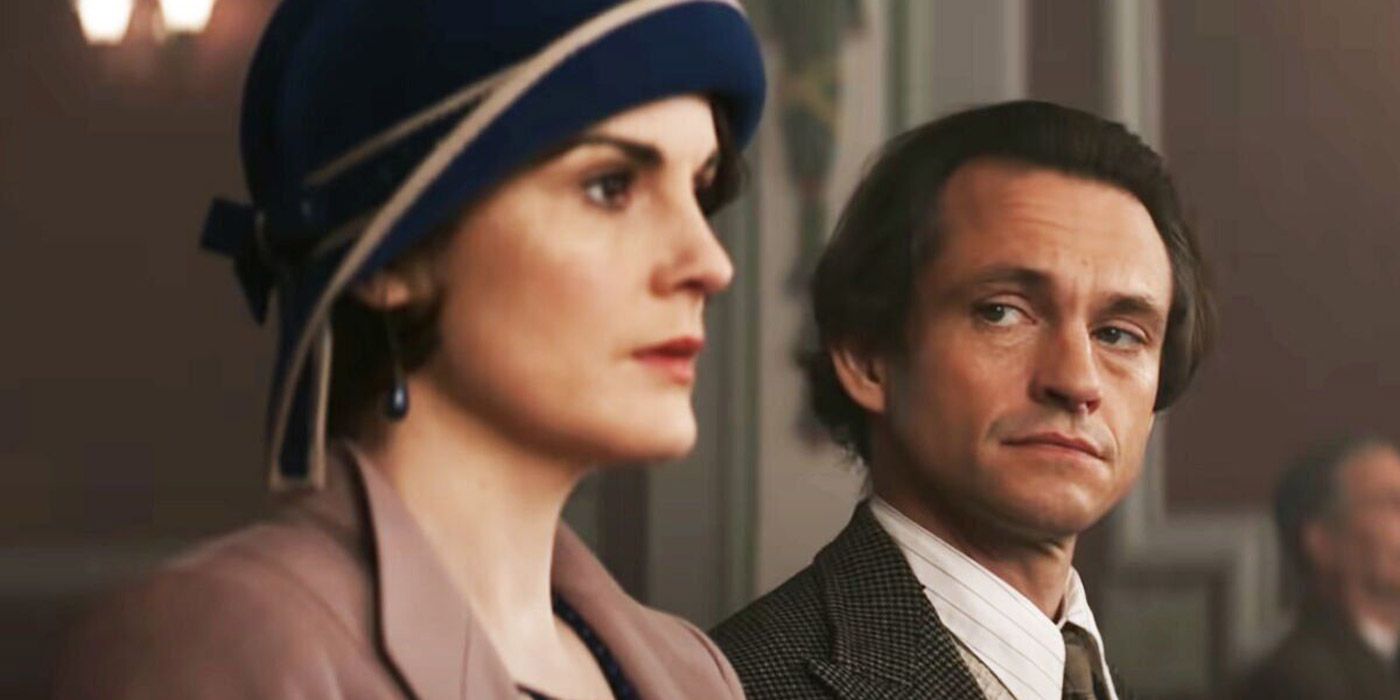
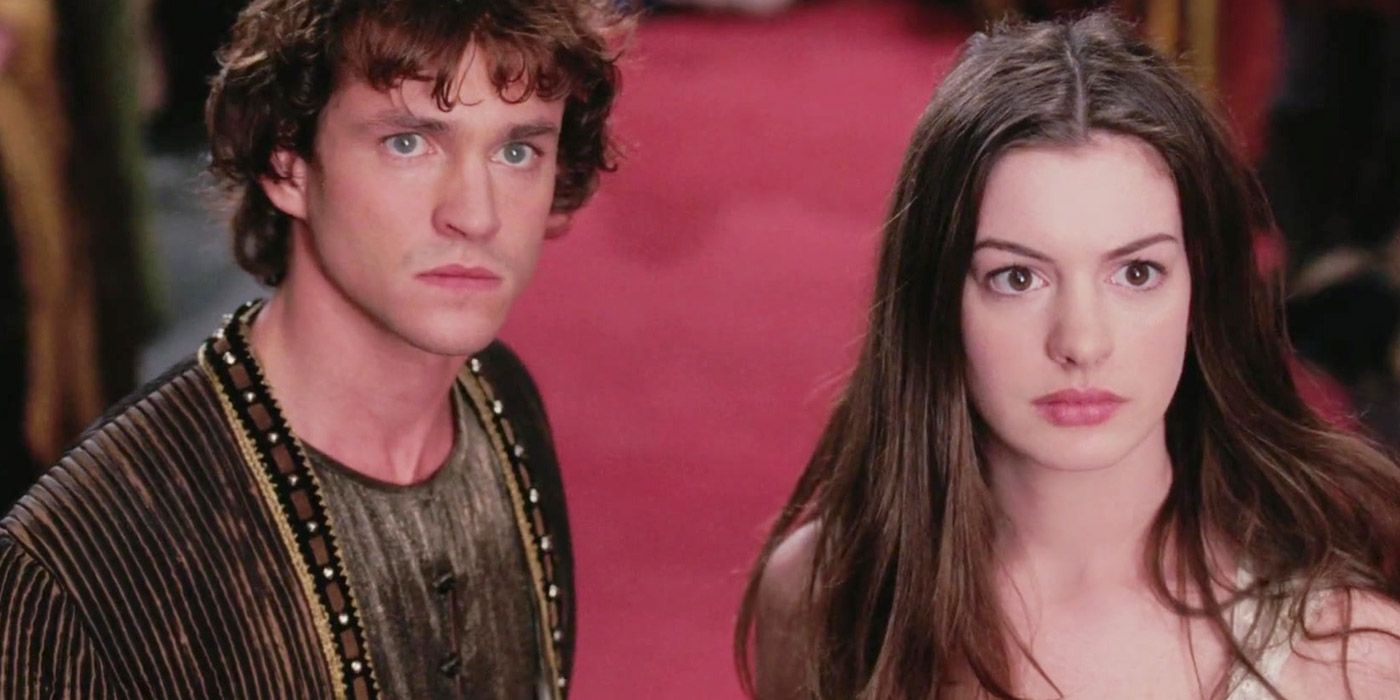
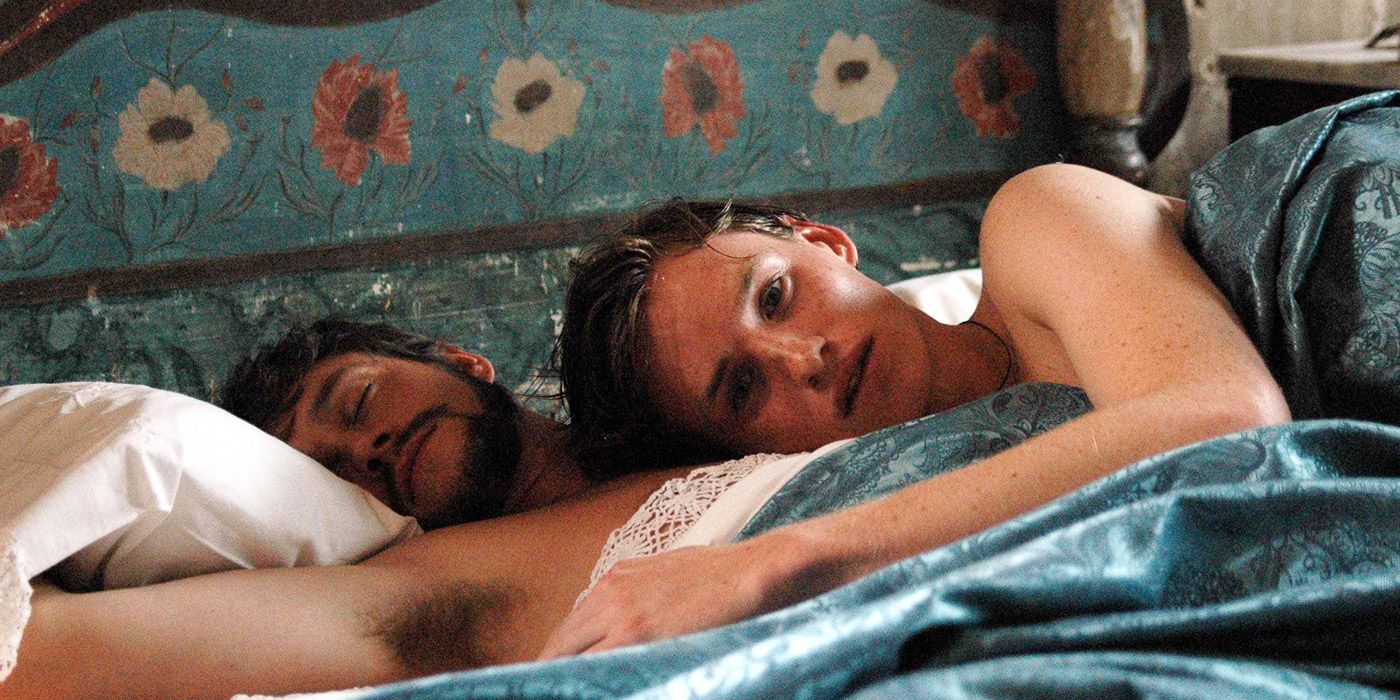
![Den Of Thieves 2: O escritor / diretor do Pantera afirma que seus assaltos são todos baseados em roubos do mundo real [Exclusive Interview]](https://i2.wp.com/www.slashfilm.com/img/gallery/den-of-thieves-2-pantera-interview-exclusive/l-intro-1733425738.jpg?w=238&resize=238,178&ssl=1)

